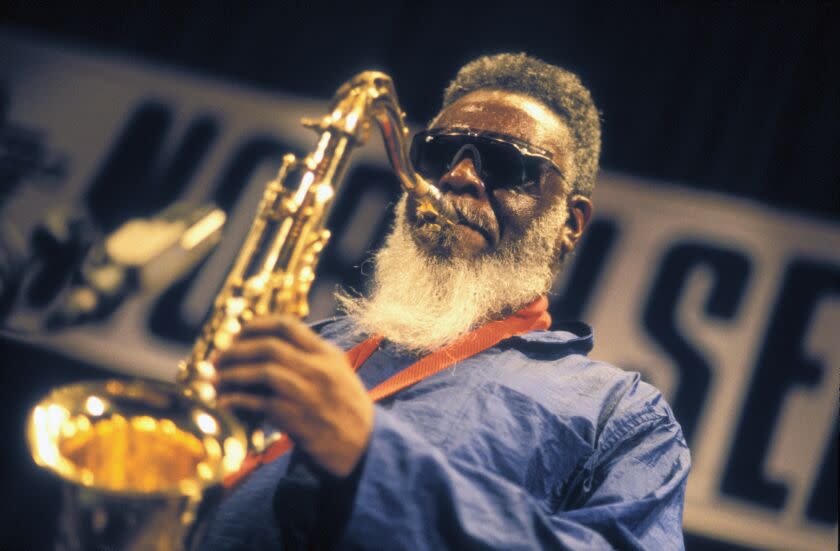Pharoah Sanders, legendary jazz musician, dies at 81

Pharoah Sanders, the legendary jazz saxophonist perhaps best known for his transcendent work with John Coltrane and for a solo run for Impulse Records beginning in the mid-1960s, and who helped define the so-called spiritual jazz movement, has died. He was 81.
Sanders died Saturday morning in Los Angeles, his record label, Luaka Bop, confirmed on Twitter. The cause of death was not given.
"We are devastated to share that Pharoah Sanders has passed away," read the label's statement. "He died peacefully surrounded by loving family and friends in Los Angeles earlier this morning. Always and forever the most beautiful human being, may he rest in peace."
Born in Little Rock, Ark., into a musical family, Sanders came up in the San Francisco Bay Area, where he played alongside many of the area's best musicians, including fellow saxophonists Dewey Redman and Sonny Simmons, pianist Ed Kelly and drummer Smiley Winters.
He moved to New York in 1961, where at first he was unable to make a living with his music but soon found work jamming with Sun Ra, Don Cherry, Billy Higgins and other jazz greats.
In 1965, Sanders joined Coltrane's band as a tenor saxophonist and together they broke the traditional molds of jazz in albums like “Ascension” and “Meditations.”
"Coltrane’s ensembles with Sanders were some of the most controversial in the history of jazz," Sanders' website said.
"Their music represents a near total desertion of traditional jazz concepts, like swing and functional harmony, in favor of a teeming, irregularly structured, organic mixture of sound for sound’s sake. Strength was a necessity in that band, and as Coltrane realized, Sanders had it in abundance."
After Coltrane’s death in 1967, Sanders briefly performed with his widow, Alice Coltrane, before he split to do his own projects.

In 1969, Sanders released his most famous work, "Karma," which featured “The Creator Has a Master Plan,” a recording that became one of the most influential tracks of its time.
Sanders continued to release records throughout the 1970s and ’80s as a bandleader and sideman before his output began to slow in the ’90s.
Following a long hiatus, he returned to the studio in 2021 to record "Promises" with electronic music producer Floating Points and the London Symphony Orchestra.
"My beautiful friend passed away this morning," wrote Floating Points on Instagram following news of his death. "I am so lucky to have known this man, and we are all blessed to have his art stay with us forever. Thank you Pharoah."
Sanders' complex and structurally fluid instrumental ideas would come to influence subsequent generations of musicians, including the L.A. scene that produced Flying Lotus, Kamasi Washington, Madlib, Carlos Niño and Terrace Martin.
In a 2020 interview with the Los Angeles Times, Sanders was soft-spoken and would reply to questions with single-sentence answers. When asked about his famous work “The Creator Has a Master Plan" and whether the state of the world made him doubt any grand design, his answer was short: “The creator has a master plan. That’s it.”
At his side was his longtime friend and saxophonist Azar Lawrence, who added: “The message that Pharoah has continued to give us is one of continued hope. The creator has a master plan — meaning that even during this period, all of this is within the master plan. Everything’s working together for our good.”
This story originally appeared in Los Angeles Times.

 Yahoo Movies
Yahoo Movies 
